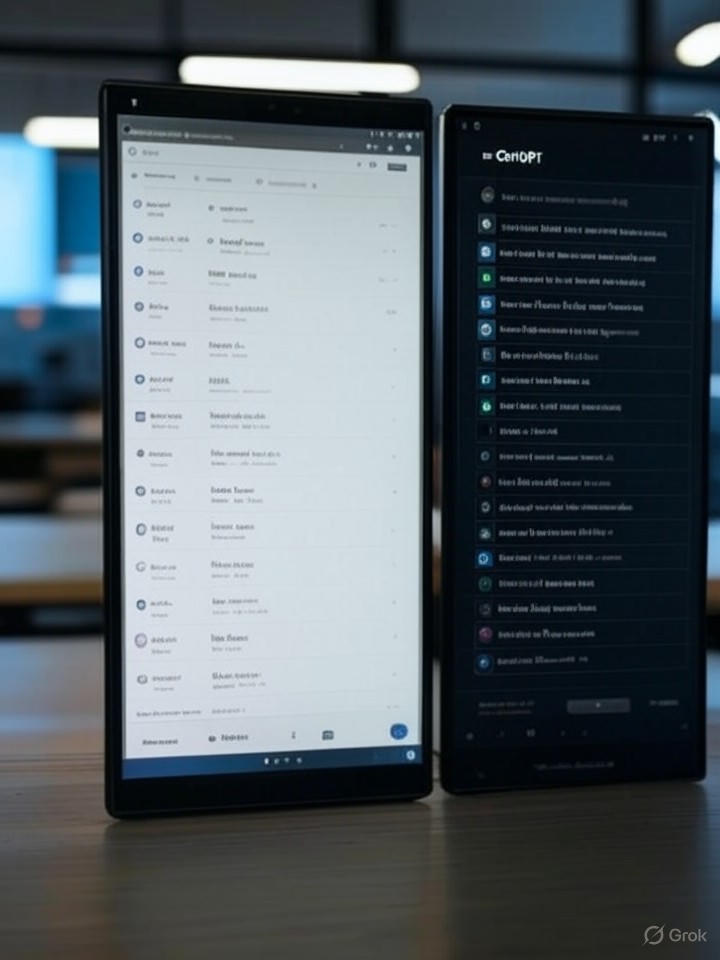In the rapidly evolving world of artificial intelligence-driven search, a stark divide has emerged between tech giants Google and OpenAI. Recent data reveals that Google’s AI Overviews and AI Mode frequently clash with ChatGPT on brand recommendations, disagreeing nearly two-thirds of the time across a wide array of queries. This discrepancy isn’t just a quirk of algorithms; it underscores fundamental differences in how these systems process and prioritize information, potentially reshaping how brands position themselves in the digital marketplace.
The analysis, drawn from thousands of shopping-related queries, shows that when users seek product recommendations—say, the best running shoes or wireless earbuds—Google’s tools tend to cast a wider net, mentioning 2.5 times more brands than ChatGPT. While Google often cites sources extensively, ChatGPT leans toward brevity, sometimes omitting citations altogether, which raises questions about transparency and reliability in AI responses.
Contrasting Strategies in AI Recommendations
This divergence stems from inherent design philosophies. Google’s AI, integrated deeply with its vast search index, emphasizes comprehensiveness, pulling from a broad spectrum of web data to offer diverse options. In contrast, ChatGPT, powered by OpenAI’s models, prioritizes concise, conversational answers, which can lead to narrower selections. According to a report from Search Engine Land, these differences result in a 61.9% disagreement rate on top brand picks, highlighting how AI systems might inadvertently favor certain brands based on training data and algorithmic biases.
For industry insiders, this means rethinking optimization strategies. Brands that rank highly in traditional Google search may not automatically gain visibility in ChatGPT’s responses, and vice versa. The data suggests that Google’s approach, with its heavier reliance on citations, could benefit from established SEO tactics, while ChatGPT’s outputs might require more narrative-driven content to influence mentions.
Implications for Brand Visibility and Marketing
Delving deeper, the study by analytics firm BrightEdge, as detailed in BrightEdge’s insights, examined over 1,000 queries and found Google AI Mode providing citations in 85% of cases, compared to ChatGPT’s mere 15%. This citation gap not only affects user trust but also signals to marketers the need for generative engine optimization (GEO)—a nascent field focused on tailoring content for AI recommendation engines.
Such disparities could amplify market inequalities. Smaller brands might struggle in ChatGPT’s succinct responses, where only a handful of names dominate, whereas Google’s expansive lists offer more entry points. Executives at companies like Nike or Apple, often cited across platforms, may find their dominance reinforced, but emerging players face an uphill battle in this bifurcated AI ecosystem.
The Broader AI Search Dynamics
Interestingly, underlying dependencies add another layer of complexity. Reports indicate that ChatGPT has been tapping into Google’s search results via third-party services like SerpApi for real-time data, as noted in Search Engine Land’s coverage of OpenAI’s practices. This ironic reliance underscores Google’s enduring infrastructure advantage, even as competitors like ChatGPT aim to disrupt it.
For marketers and tech strategists, these findings demand proactive adaptation. Monitoring brand mentions in AI responses—through tools highlighted in resources like Irene Chan’s guide on platforms for tracking ChatGPT outputs—becomes essential. As AI search matures, bridging these recommendation gaps could involve hybrid strategies that optimize for both breadth and depth.
Looking Ahead: Convergence or Continued Divide?
Industry observers predict that as models evolve, some convergence might occur, especially with Google’s rising share in generative AI traffic, per data from Search Engine Land. Yet, the current 62% disagreement rate serves as a wake-up call: brands ignoring these AI nuances risk invisibility in an era where queries increasingly bypass traditional search engines.
Ultimately, this tension between Google and ChatGPT isn’t merely technical—it’s a battle for user mindshare. With AI handling more consumer decisions, from shopping to research, the stakes for accurate, unbiased recommendations have never been higher. Forward-thinking companies will invest in GEO now, ensuring their brands resonate across all AI platforms, lest they be left out of the conversation entirely.
